Kidney deaths: Transplant 'lessons' to be discussed
- Published
Prof Anthony Warrens said it was important to remember that on the whole transplantation was safe
UK transplant experts are to meet to see what lessons can be learnt following the deaths of two men who were given kidneys infected with a meningitis-causing parasitic worm.
Robert "Jim" Stuart and Darren Hughes died after being given the organs at Cardiff's University Hospital of Wales.
A coroner at an inquest into the deaths recorded a narrative verdict.
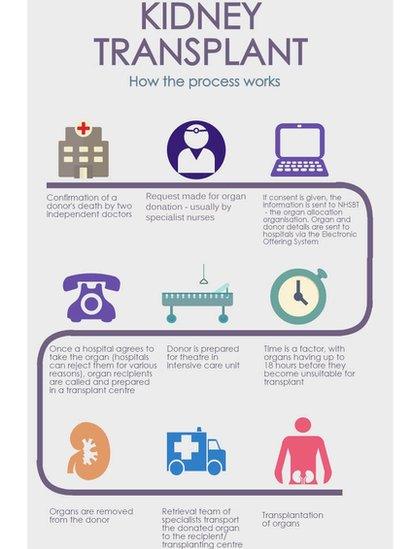
Prof Anthony Warrens, president of the British Transplantation Society, said the case had been "very unusual".
But he said the transplant community was "responding very rapidly... so that lessons can be learnt from this tragic case".
The meeting in the new year is likely to focus on questions such as whether or not it would be possible for doctors to find out more information about potential problems with donor kidneys before they are transplanted.
The meeting will also discuss how to improve the way potential risks are discussed with organ recipients in advance of surgery.
The families of both Mr Stewart, 67, of Cardiff, and Mr Hughes, 42, of Bridgend, say both men would never have agreed to press ahead with the transplants if they had known the donor - an alcoholic from the north of England - had died of meningitis.
However, the surgical team at UHW told the inquest both men knew the donor's medical history.
'Maximum information'
Prof Warrens, who is dean of education at Barts and London School of Medicine and Dentistry, said it was important to remember that, on the whole, transplantation is a relatively safe procedure which "revolutionises people's lives".
He said: "A meeting has been called for early in the new year where a group of us will come together to look at what can be learnt."
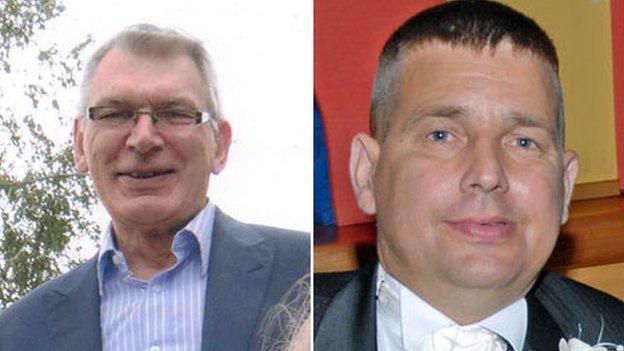
Robert Stuart, 67, and Darren Hughes, 42, died after receiving kidney transplants
He added: "We will be asking the question - what information can we get in advance of a transplant so as to give the potential recipient maximum information.
"In order for them to be able to make an informed decision [on accepting organs], ultimately the decision is the patients.
"They need to be given the medical background saying these are the risks you may be taking but also these are the advantages - so that the person can make an informed decision."

Who decides whether an organ is fit for transplant?
When a potential donor dies it is up to the team at the donor hospital to check whether any organ is working well enough and to consider the donor's medical history.
If the deceased had cancer, for example, then organs should not be taken.
Tests are also carried out for infections like HIV and hepatitis.
If they are negative a computer will then try to match the organs with the most suitable recipient across the UK.
It all has to happen very quickly, ideally within a day, to prevent the organs from deteriorating too much.

Analysis by BBC Wales' health correspondent Owain Clarke
Over 3,500 transplants took place in the UK last year - but double that number of patients were waiting.
Last year, in Wales, organs were only taken from 54 individuals even though a million people are on donor register.
This is because for organs to be transplanted, death has to occur in a place like intensive care - allowing doctors to retrieve them quickly.
So there's a huge demand for a limited supply which, coupled with advances in medicine means organs which would have been rejected only a few years ago are offered for transplant now.
Nobody could have predicted the kidneys given to Darren Hughes and Jim Stewart had been infected with an incredibly rare but deadly parasitic worm.
However, doctors did know the kidneys were of "higher risk" having come from an alcoholic that had died of meningitis.
In the case of Mr Stewart and Mr Hughes, several other hospitals had decided to reject the kidneys on offer - it's not uncommon I'm told for that to happen.
Yet Argiris Asderakis, the director of transplants at UHW, decided to accept them, judging that the antibiotics would have cleared up any infection and the kidneys could recover.
Ultimately he came to the conclusion that the benefits outweighed the risks.
Others doctors, including the expert brought in by the health board to review the case came to a different conclusion.
But whatever the views of doctors. it is the patients that have the final say.

- Published4 December 2014
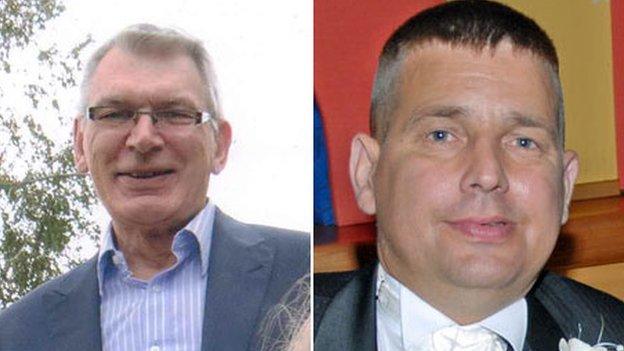
- Published3 December 2014

- Published19 November 2014
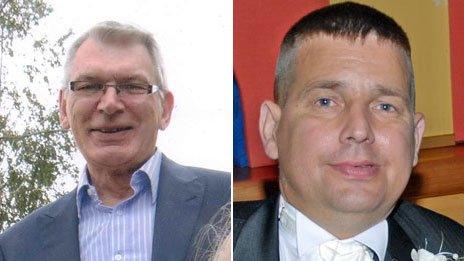
- Published18 November 2014

- Published17 November 2014
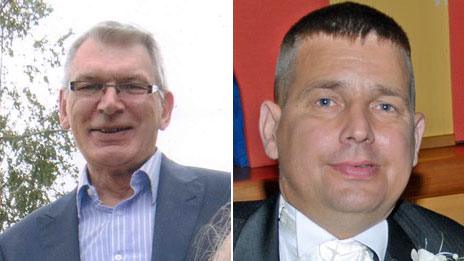
- Published14 November 2014
